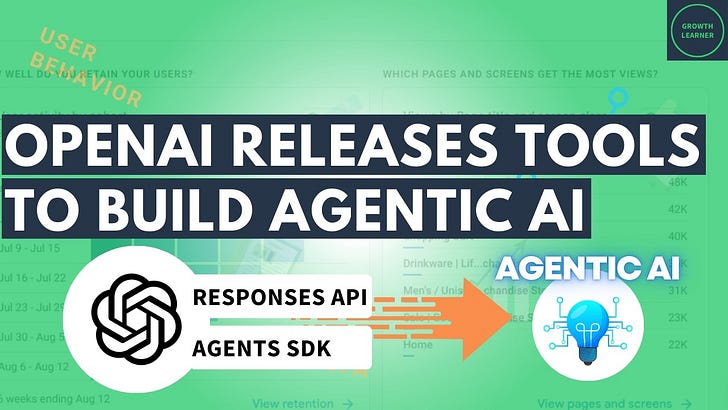Using Debate in the Classroom to Manage AI Agents that Can Complete All Coursework
Join us for a special class on debate in the classroom for paid Subscribers.
Introduction
The advancement of AI agents is reshaping education, creating both opportunities and challenges for reimagining how students engage with academic work.
With recent launches like OpenAI's agent-building toolkit and China's autonomous Manus system, these technologies now demonstrate unprecedented capacity to parse complex instructions and execute multi-step academic tasks.
In many cases, all students need to do is drop the assigment into the AI. The AI will then read the instructions, and then take multi-step action to complete it with little to know errors. In the end, it will get a better grade than 99% of students.
Next-Gen AI Agents in Education
OpenAI's New Agent Ecosystem
Launched March 11, 2025, OpenAI's platform provides developers tools to create AI agents that:
Process instructions through the Responses API combining chat simplicity with tool integration
Conduct web/file searches and computer operations via built-in tools
Coordinate workflows using the Agents SDK for single/multi-agent collaboration
Enable real-time monitoring through observability dashboards
These advancements allow AI systems to tackle assignments like:
Analyzing research paper requirements
Curating sources through semantic file search
Drafting structured outlines
Generating initial content iterations
Manus: The Autonomous Chinese Agent
This Claude/Sonnet-powered system demonstrates startling autonomy, recently completing tasks like:
Building a professional website from scratch
Resolving technical hosting issues
Synthesizing biographical content from social media data
Here’s a comparative breakdown of agentic research tools from leading AI developers, formatted to match your existing structure:
Next-Gen AI Research Agents
OpenAI's Agentic Research Framework
Launched March 2025, OpenAI's ecosystem enables:
Multi-modal analysis through integrated Responses API and Assistants API
Self-correcting workflows via observability dashboards tracking:
Source validation paths
Argument coherence scoring
Citation integrity checks
Enterprise-grade deployment using Agents SDK for:
Parallel document processing
Cross-agent verification chains
Compliance logging
Perplexity Deep Research
Distinguished by its:
Dynamic research refinement adapting search strategies mid-process
Benchmark-leading performance:
93.9% accuracy on factuality tests
21.1% score on Humanity's Last Exam (vs 18.3% industry avg)
Open access model offering:
Unlimited queries for Pro users ($20/mo)
PDF/Page exports with embedded citations
Google Gemini Deep Research
Integrates with Workspace through:
Collaborative agent system where:
Gemini 1.5 Pro manages 1M token context windows
Research plans adapt via user feedback loops
Enterprise features launching Q1 2026:
Team research version histories
G-Drive synchronization
Auto-generated Slide decks
The Imperative for Instructional Redesign
When AI can mechanically complete traditional assignments, educators must shift focus to performance-based assessment that evaluates:
Live cognitive processing
Situational adaptability
Social-emotional intelligence
Debate as Performative Assessment
While students might use AI agents to:
Research opposing viewpoints
Simulate argument/counterargument exchanges
Generate evidence dossiers
...the debate format inherently requires:
Human skills such as improvised rebuttals, vocal nuance and body language, and emotional intelligence highlight the limitations of AI, which include pre-programmed responses, text/voice synthesis gaps, and contextual empathy barriers.
This creates a pedagogical checkpoint where preparation meets performance.
AI can assemble materials but cannot be the debater - only the debater's collaborator.
Implementing Debate-Centric Learning
Effective integration requires:
1. AI-Augmented Preparation
Train students to use agents for:
Opponent argument prediction
Historical precedent analysis
Real-time fact-checking during practice
2. Performance Rubrics Emphasizing
Spontaneous critical thinking
Adaptive communication strategies
Ethical reasoning under pressure
3. New Teacher Roles as
Debate choreographers designing multi-stage challenges
AI literacy coaches teaching responsible tool use
Critical thinking referees assessing human vs artificial contributions
Join Our Expert Session Integrating Debate into the Classroom
For educators ready to lead this transformation (or even just learn about the possibility), simply purchase a paid subscription to this blog and join us for
"Debating the Future: AI-Augmented Critical Thinking"
March 18, 2025 | 8-9pm ET
This workshop will cover:
Designing AI-resistant debate formats for class
Creating tiered preparation phases using agent tools
Assessment frameworks for human-AI collaborative work
Creative options for experimentation
Participants receive:
Customizable debate templates
AI prompt engineering guide for students
Observability toolkit to audit human/AI contribution ratios
The AI genie won't return to the bottle - but through deliberate instructional design, we can harness its capabilities while elevating irreplaceably human skills.
By making debates and similar performative assessments the cornerstone of learning, we create environments where AI becomes a launchpad rather than a crutch. The classroom of tomorrow isn't about banning bots, but about crafting challenges where human cognition remains the ultimate differentiator.



